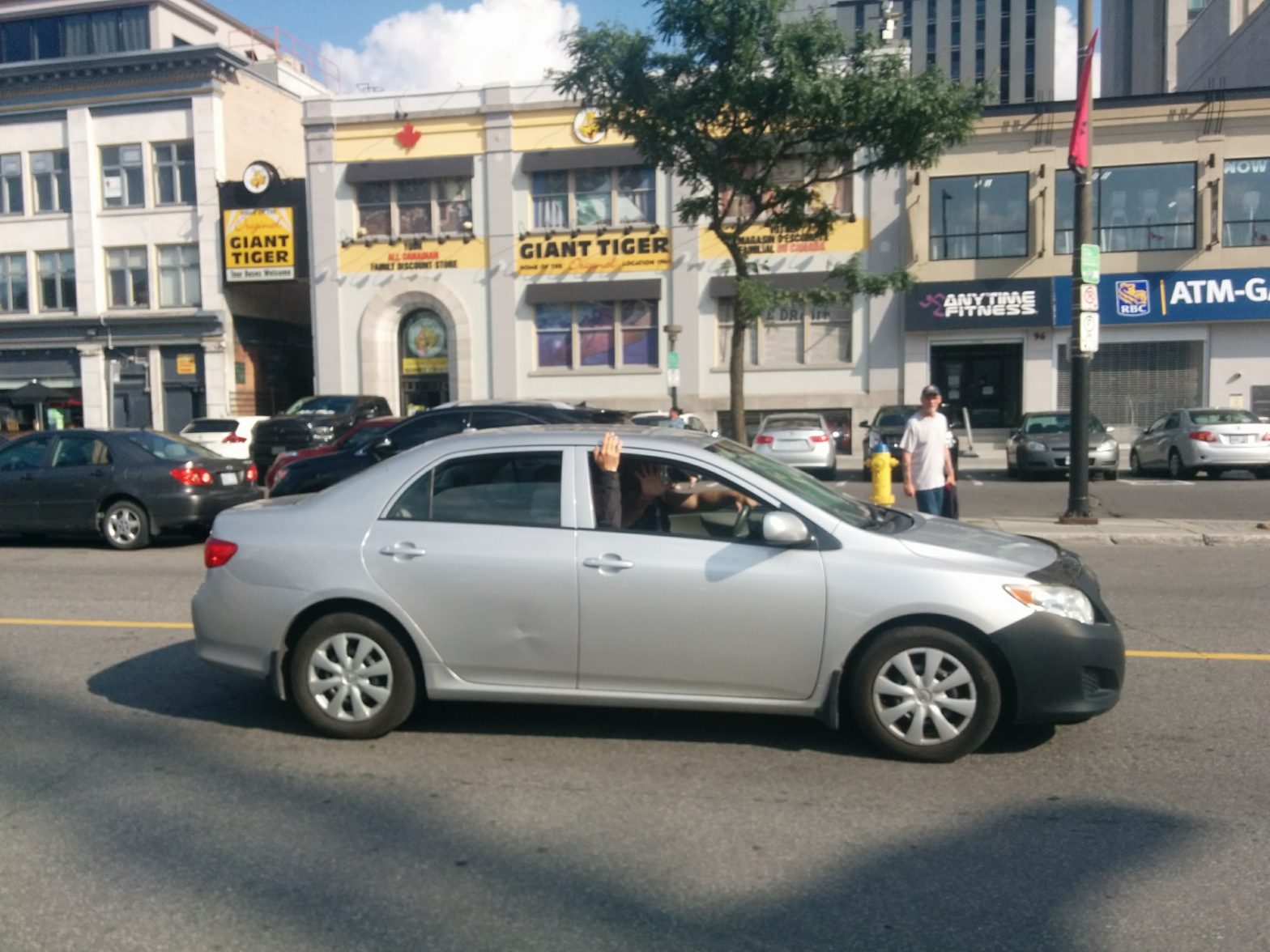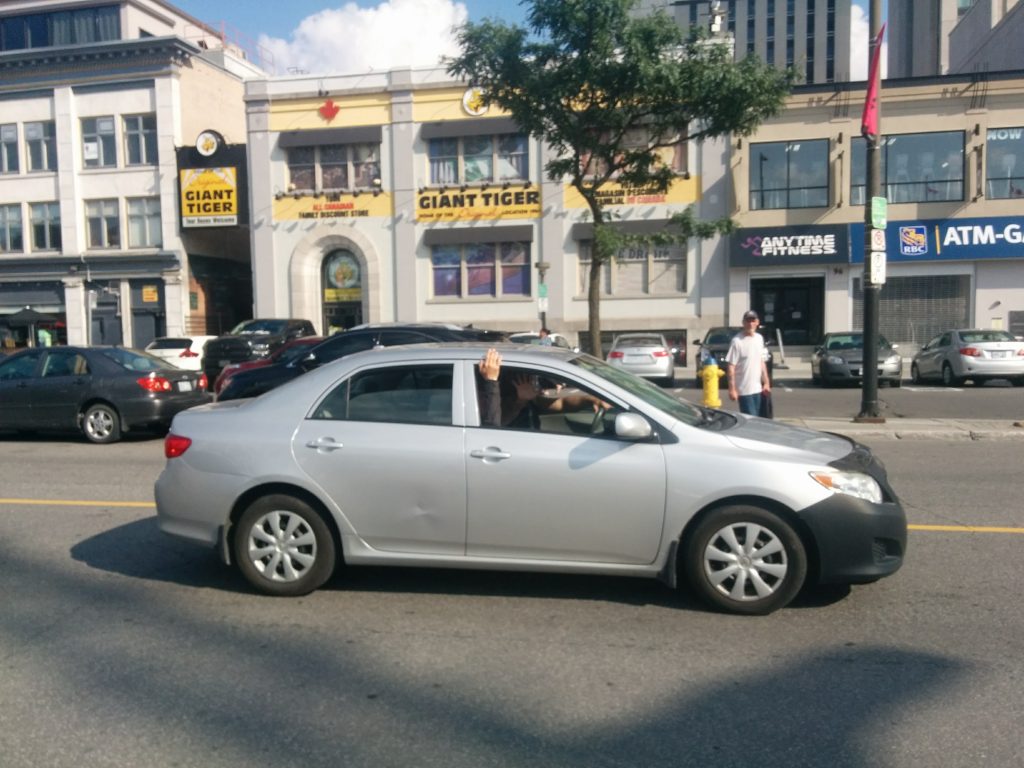I waited to cross at the street corner. A sedan pulled up to turn with two men inside. One in his thirties, the other maybe in his fifties. Their windows were open.
“T’est tu un gars ou une fille?” – Are you a guy or a girl? The driver was leaning over his friend, looking at me. A moment later he shouted “T’est un gars avec un pénis!” – You’re a guy with a penis! He was saying it in the same tone I’d expect a child to use.
I was surprised at his outburst given my unremarkable appearance – I was wearing shorts and a t-shirt. The car drove off. I stood there realizing that this, as so many times before it, would be entirely inconsequential for the perpetrator while being hurtful to me.
Frustrated, I ran up to their car which was caught in traffic a block away and snapped some photos. The driver, in English, shouted “I hate you!” I wasn’t sure whether the passenger would exit the vehicle in response to this conflict escalation and vacated the area.
Something like this happens semi-regularly in Ottawa. Last month it was a pedestrian mocking my voice as I talked to a friend and calling me a fag. I took his photo too. On the same day, while grocery shopping, a whole family joined in wondering to each other out loud if I was a man and a woman as they sat on their front lawn. I ignored them.
The harassment I encounter is all related to how I am not perceived to fit in gender norms. There’s a few types of harassment I see over and over:
- The perpetrators cannot discern whether I am a man or woman and state so out loud. It is sometimes followed by their pronouncement that I’m a man. Harassers of this type are almost always cisgender men ages 25 to 45, and almost always communicating by raised voices or shouting.
- The perpetrators gender me as a man and doing something perceived for women. Buying clothes, using washrooms, getting my brows done, etc. Harassers of this type are frequently cisgender women communicating through body language.
- On rare occasions perpetrators assault me, such as by grabbing my breasts to see if I’m a man or woman.
There’s another type of harassment that I’ll include here, which is directed at all gender non-conforming individuals rather than me personally through public channels:
- The perpetrators portray my use of public spaces as a threat to women and children. They claim we are preying on children to recruit them. They state that my being protected by anti-discrimination policies harms free speech, freedom of assembly, freedom of religion, etc. They want us purged from our jobs. Meanwhile, They are almost always conservatives, Christian, over 35 and insistent that they are not transphobic.
I hear the word “hate” a lot being used when perpetrators like these are discussed. While they are harmful and must be stopped, they are rarely truly motivated by hate. What they actually are is transphobic and that’s not the same.
Framing opponents as motivated with hate – an intense or passionate dislike towards non-confirming people – is an easy argument to make. There are benefits to arguments like that and I’m not ever going to get in the way of someone using it to stand up for my fundamental rights.
The opponents I’ve encountered have never actually hated me. The men who shout those things do so to bond with their friends, and don’t think of me at all. My other-ness to them makes me an object, not a person they could relate to. That other-ness is legitimized through comedies that dehumanize trans people and movies that have cis people play trans roles. The men who shout things alone do so because of the rigid gender norms that they continue to be bombarded with. The women who view me as a man in a women’s space do so out of ignorance. The media they consume doesn’t include women like me, and therefore women like me doing things like changing in a change room after working out.
None of these people have a pre-existing hatred towards me. What they feel is created upon seeing me and is either the result of gender non-conforming individuals being omitted or misrepresented.
As for the Parliamentarians, pundits, and religious figures they are fighting a fictitious monster they’ve conjured out of their ignorance, for which real people like me are paying the price. They do not hate me, they cannot even see me. When they are confronted by people like me face-to-face, and they don’t have a crowd to egg them on, their tune changes. “Oh I don’t mean people like you,” they say. Because I’m not the monster they expected – no one is.
By calling these people hateful, we are moving further away from being able to address what actually fuels their vitriol, because we too are making monsters and fighting those instead.

